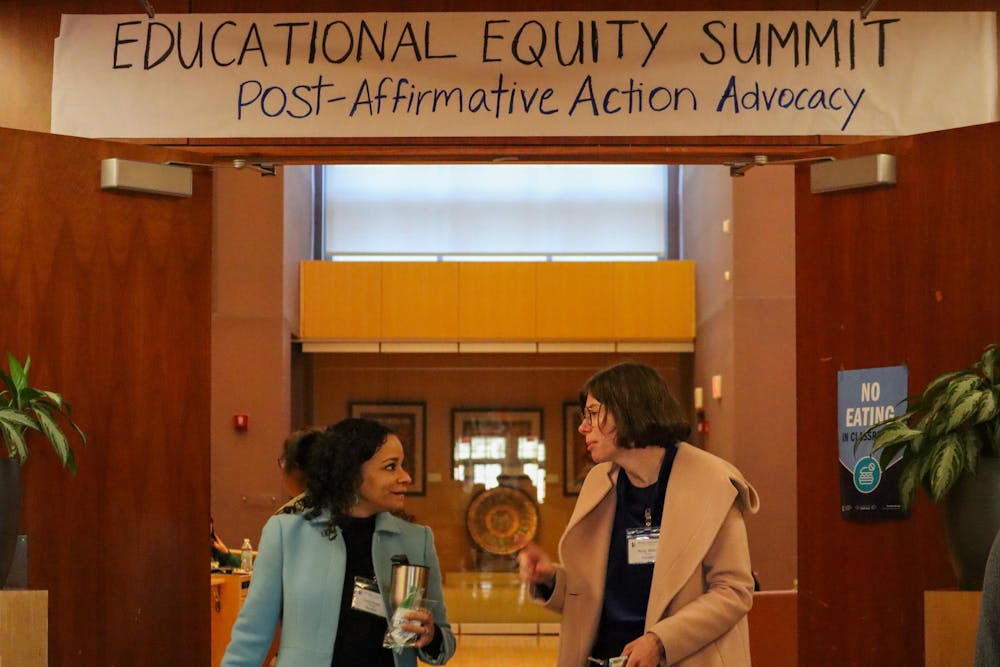UNC Affirmative Action Coalition hosted its inaugural Educational Equity Summit on Jan. 20, featuring guest speakers and panelists discussing the past and future of racial equity at UNC.
Pragya Upreti, the community chair of the AAC, said the event aimed to educate students on the University’s racial history and its connection to current affirmative action policies. She said the event was planned to include a diverse range of panelists and speakers with diversity and affirmative action expertise.
The event follows the first admissions cycle since the June U.S. Supreme Court ruling struck down affirmative action in higher education.
Geeta Kapur, a civil rights attorney, spoke at the summit about UNC’s racial history, referencing material from her book, “To Drink from the Well: The Struggle for Racial Equality at the Nation’s Oldest Public University.” In particular, she noted that for much of the University's history, Black people were not permitted to attend the University, despite it being largely built off of the unpaid labor of enslaved people.
Civil rights historian Danita Mason-Hogans spoke about how the lack of acknowledgment of Black people’s contributions to the University was hypocritical and an injustice.
“Some of our surnames — McCauley, Battle, Mason — they're connected to this University,” she said during the panel. "Although we are connected to the University in that way, we were never, ever connected to the power.”
During the panel, civil rights attorney Amber Koonce said understanding this racial history is especially crucial for young people. She said the Court’s ruling fits a narrative that overlooks the racial history that makes affirmative action essential.
“That’s why now we see history being attacked,” Koonce said during the panel. “They don’t want younger people to understand why these programs were necessary in the first place.”
During the panel, Koonce and Mason-Hogans discussed achievement gaps within North Carolina K-12 school districts, such as Chapel Hill-Carrboro City Schools. Mason-Hogans said often when schools show achievement gaps within their students, what really is being shown is opportunity gaps based on race.



